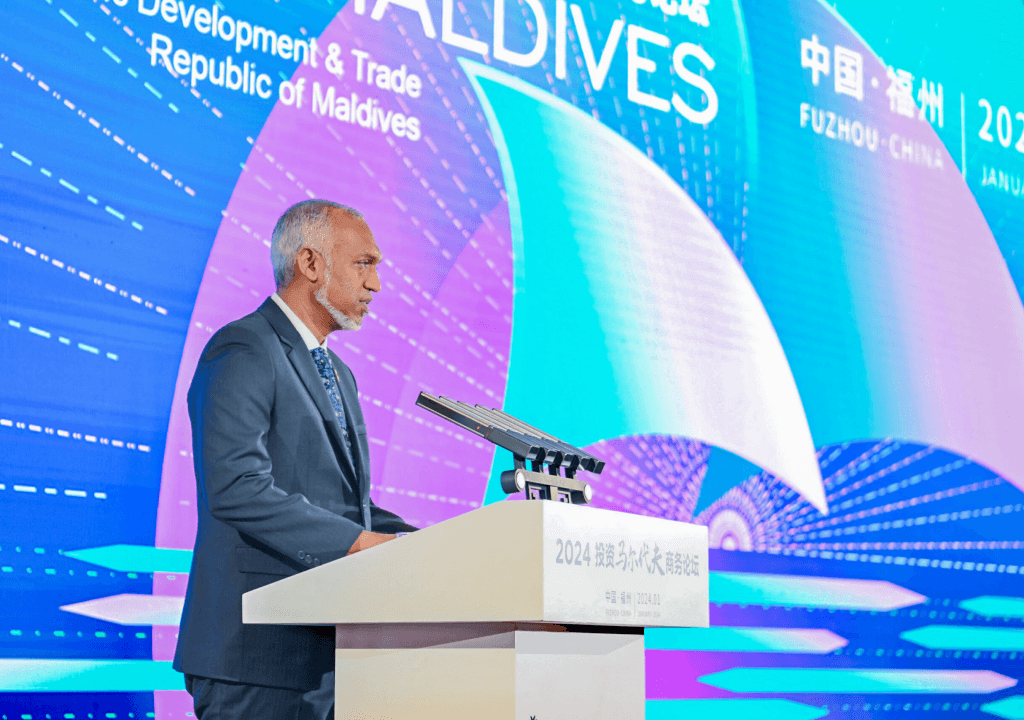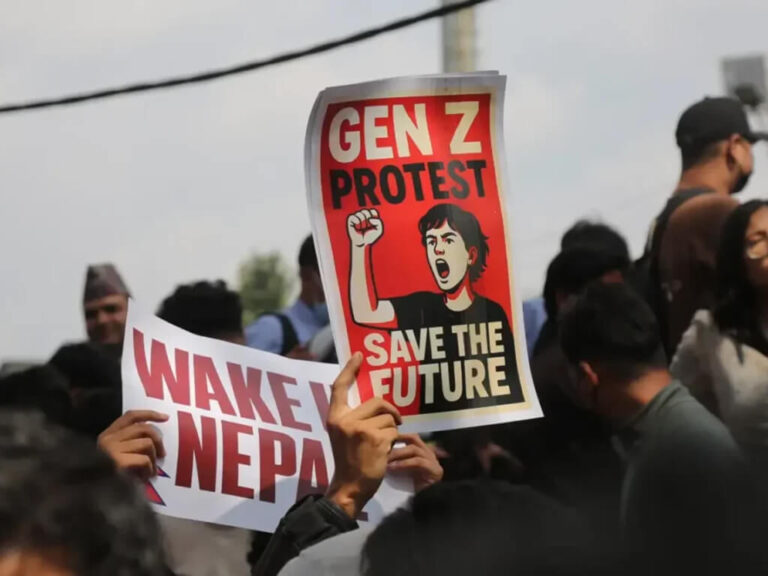China and the Maldives have solidified a robust military partnership. On Tuesday, Maldivian officials publicly expressed their desire for the withdrawal of Indian troops from the archipelago while simultaneously finalizing a “military assistance” pact with China. The agreement, characterized as China’s provision of cost-free military aid to the Republic of Maldives, was formally endorsed by the Maldivian Minister of Defense and a senior Chinese military official, aiming to enhance bilateral ties. As per a statement from the Ministry of Defense on X, formerly Twitter, the Maldivian Defense Ministry underscored the agreement’s significance in fostering “stronger bilateral ties,” specifying that the military aid is offered without charge, although specific details were not disclosed.
Since assuming office in November, President Muizzu has actively sought to strengthen his ties with China. This shift in policy aligns with his “India Out” platform from the election campaign, aimed at reclaiming what is perceived as “lost” sovereignty. President Muizzu underscored Maldives’ Islamic identity over its Indian identity by opting for a ceremonial trip to Turkey, eschewing the traditional visit to India after taking the oath. Subsequently, he solidified his political ties with China. In line with his electoral commitments, Muizzu set a deadline of March 15 for the complete withdrawal of Indian military personnel from the Maldives. Negotiations resulted in a phased pullout, with the initial forces departing before March 10 and the remaining troops scheduled to leave by May 10.
President Muizzu’s triumphant state visit to Beijing in January resulted in the signing of twenty agreements encompassing infrastructure, trade, economy, green development, grants, and various initiatives. Notably, around $127 million has been allocated for the construction of 30,000 social housing units and the enhancement of Male’s road infrastructure. These commitments underscore the president’s unwavering commitment to fostering a robust alliance with China across multiple critical domains.
During the visit, Muizzu underscored China’s position as one of the Maldives’ closest allies and key developmental partners. China’s Foreign Ministry spokesperson, Mao Ning, affirmed Beijing’s dedication to establishing a comprehensive strategic cooperative partnership with the Maldives. Mao emphasized that their collaboration is not directed at any third party and remains impervious to external influences.
Following the visit to China, President Muizzu, in a presidential address on February 5, underscored the critical need for the Maldives to bolster its military capabilities. He revealed that the defense force was on the verge of attaining round-the-clock surveillance capabilities over the nation’s Exclusive Economic Zone, covering an extensive 900,000 square kilometers. Additionally, the government decided against renewing an agreement that permitted foreign countries to measure and map the oceans and coasts of the Maldives.
India has expressed serious concerns over these recent developments, with the Maldives facing accusations of betrayal in the Indian media. Historically considered a traditional ally of India, the small archipelago in the Indian Ocean, situated close to the Indian mainland, has been heavily dependent on India for support, particularly in terms of military aid, since gaining independence. The alliance’s significance was underscored in 1980 when Indian military forces were dispatched to the Maldives to prevent Sri Lankan rebels from taking control of the islands, solidifying India’s influence in the region.
However, as the Maldives’ economy underwent expansion and tourism exploration, the nation’s focus pivoted towards China. China emerged as a prominent player, seeking to assert itself in the Indian Ocean and challenge India’s regional dominance. This shift proved highly advantageous for the Maldives, fueled by China’s substantial investments in the region, notably through projects like the $200 million China-Maldives Friendship Bridge and various other initiatives under the Belt and Road Initiative (BRI).
The completion of this transition was marked by the victory of the president and the party backed by China in the recent Maldivian election, resulting in the ousting of established political parties. The Maldives’ altered geopolitical objectives solidified by the invitation extended to the Chinese Military and the removal of the Indian military from the islands.
Presently, there are 77 Indian soldiers and 12 medical personnel from the Indian armed forces stationed in the Maldives. India has provided two helicopters and a Dornier aircraft, primarily employed for marine surveillance, search and rescue operations, and medical evacuations. In light of safety concerns, India has initiated the withdrawal of its military presence, acknowledging the associated risks.
With the Maldives heavily indebted to China, their reliance on the country is substantial, encompassing the use of airports, ports, and territories. Any escalation of tensions between India and China could position the Maldives as a focal point. Male is in close proximity to the critical Kochi naval base and Thiruvananthapuram, a significant city in India. The Thiruvananthapuram airport is merely a few kilometers from the Maldives. Pakistan, Sri Lanka, Bangladesh, and all neighboring nations are aligned with China, heightening the risk for India.
In response, the Indian government has initiated projects to fortify Lakshadweep, an archipelago near the Maldives and a geographical extension of the island chain. Major Indian billionaires are planning substantial investments in Lakshadweep. Moreover, Minicoy Island, the closest to the Maldives, is preparing to establish a naval base, airstrips, and cantonments. India is also strengthening ties with Mauritius, located to the southern side of the Maldives. Given these circumstances, India is not anticipating a reversal from the Maldives and is preparing for potential new threats.
Despite its image as a well-liked vacation spot for visitors from the US, Europe, the Middle East, and China, the Maldives lost its largest market, Which is India. Boycott calls and anti-Maldives protests spiked in India, causing a large loss for Male. Tourism is the backbone of Maldives. And the loss will hit the economy hard. The Maldives government is striving to fill the void left by the Indian market by attracting tourists from China and the Middle East. But India is creating competition in the tourism sector of the region by promoting travels to Mauritius, Seychelles and its own archipelago, Lakshadweep. The heightened competition presents a significant challenge to the Maldives, and it is evident that the country will play a substantial role in any potential tensions between India and China.








